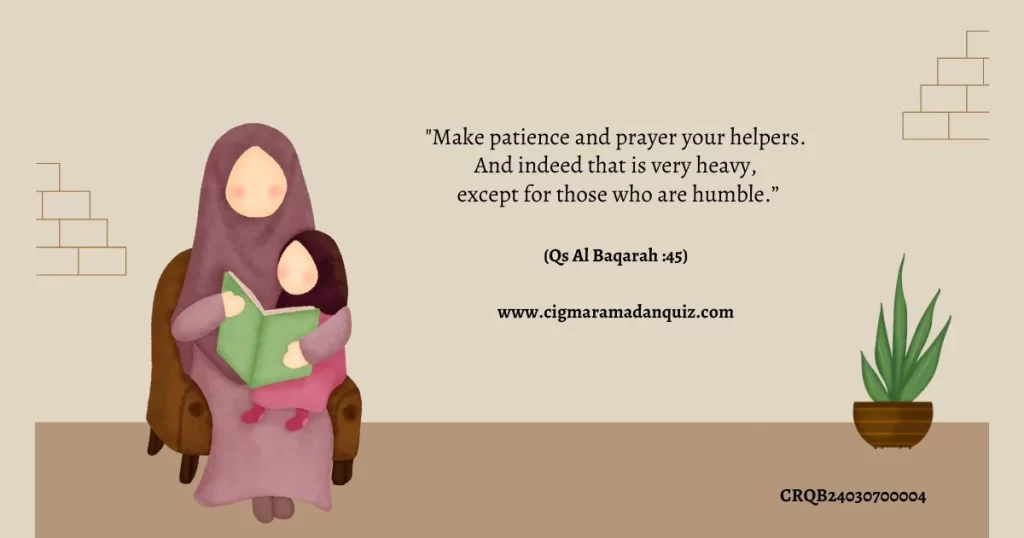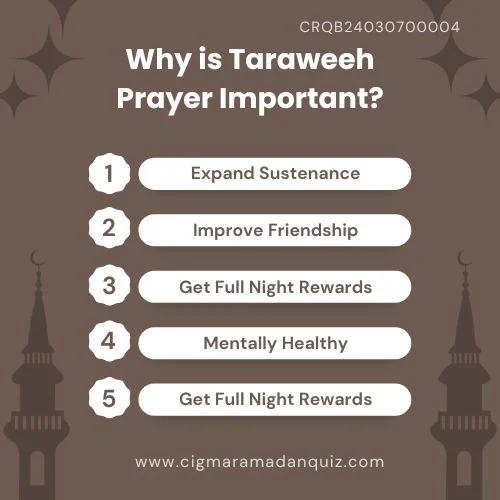Understanding the Significance of Taraweeh
Taraweeh and Taraweeh ki Dua, an integral aspect of Ramadan, holds immense significance in the hearts of Muslims worldwide. It’s a special nightly prayer that occurs during the holy month, offering believers a unique opportunity for spiritual growth, reflection, and connection with Allah. In this comprehensive guide, we delve into the rules governing Taraweeh Salah and Taraweeh Ki Dua, shedding light on its importance, methodology, and etiquettes.
Also Check : When is Ramadan 2024

1. The Essence of Taraweeh
Taraweeh is not merely a customary practice but a deeply rooted tradition in Islam. Derived from the Arabic word “Tarawih,” which means “to rest and relax,” it signifies the breaks taken during these prolonged prayers. Observing Taraweeh is considered Sunnat-e-Maukida, a highly recommended act for Muslims during Ramadan, symbolizing devotion, discipline, and spiritual rejuvenation.
2. Timing and Duration
Taraweeh prayers commence after the obligatory Isha prayer and extend until the break of dawn. According to Islamic teachings, it’s preferable to delay Taraweeh until one-third of the night has passed, although starting earlier or later is also permissible. The duration of Taraweeh varies but typically involves twenty Rakat (cycles) of prayer, each performed in sets of two.
Also Check : Ramadan Mubarak 2024
3. Structure of Taraweeh Salah
The Taraweeh Salah follows a structured format, consisting of cycles (Rakat) performed in pairs. After every four cycles, it’s recommended to take a brief rest, mirroring the time required to complete four cycles. During these breaks, individuals may engage in silent reflection, recite supplications (Duas), or offer additional prayers.
4. Taraweeh Dua
The Taraweeh Dua holds profound significance, serving as a moment for believers to express gratitude, seek forgiveness, and invoke blessings upon themselves and their community. The recommended Tasbeeh (supplication) recited during Taraweeh encompasses various attributes of Allah, emphasizing His sovereignty, mercy, and omnipotence.
Also Check : Ramadan Quiz 2024

Taraweeh ki Dua | Taraweeh Ki Dua in English
SubHaana dhil-mulki wal-malakoot, subHaana dhil-‘izzati wal-‘azmati wal-haybati wal-qudrati wal-kibri-yaa ‘i wal-jabaroot, subhaanal malikil Hayyil ladhi laa yanaamu wa laa yamoot, subbu- Hun quddusun rabbunaa wa rabbul-malaa ‘ikati war-ruH, Allaahum- ma ajirnaa minan naar, yaa mujiru, yaa mujiru, yaa mujir
Taraweeh ki Dua | Taraweeh Ki Dua in Arabic
سُبْحَانَ ذِي الْمُلْكِ وَالْمَلَكُوْتِ
سُبْحَانَ ذِي الْعِزَّةِ وَ الْعَظْمَةِ وَ الْهَيْبَةِ وَ الْقُدْرَةِ وَالْكِبْرِيَاءِ وَ الْجَبَرُوتِ
سُبْحَانَ الْمَلِكِ الْحَيِّ الَّذِي لَا يَنَامُ وَ لَا يَمُوْتُ
سُبُّوحٌ قُدُّوسٌ رَبُّنَا وَ رَبُّ الْمَلَائِكَةِ وَ الرُّوْحِ
اللَّهُمَّ أَجِرْنَا مِنَ النَّارِ
يَا مُجِيْرُ يَا مُجِيْرُ يَا مُجِيرُ
Taraweeh ki Dua Translation in English
Glory be to the Owner of the Kingdom of the earth and the heavens. Glory be to He who commands Respect and Honour and Magnificence & Awe and Power and Greatness and Omnipotence. Glory be to the Sovereign, the Ever-living. Who does not sleep nor die. He is the Most Praised, the Most Holy, Our Lord and the Lord of all the Angels and the Spirit (Jibraeel A.S). O Allah! Save us from the Fire of Hell. O Protector! O Protector! O Protector!
Also Check : Ramadan Fasting 2023-24
5. Key Rules and Etiquettes (Taraweeh Salah)
- Taraweeh prayers are Sunnat-e-Maukida for both men and women, with individuals encouraged to participate regularly.
- It’s permissible to perform Taraweeh individually, although congregational prayers hold greater merit.
- Those who have not prayed the obligatory Isha prayer cannot partake in Taraweeh or Witr until fulfilling this obligation.
- Flexibility exists in Taraweeh, allowing individuals to engage in silent reflection, recite Quranic verses, or offer additional prayers.
- Taraweeh prayers should not be rushed, and recitation should be clear and understandable, avoiding haste or unnecessary speed.
6. Completing the Quran in Ramadan
A commendable practice during Ramadan is completing the recitation of the Quran, with finishing it once, twice, or even thrice considered virtuous. Muslims are encouraged not to miss this opportunity for spiritual enrichment and connection with the divine.
7. Prohibitions and Misconceptions
- Paying a Hafiz (Quran memorizer) a salary for leading Taraweeh prayers is prohibited, as it compromises the sincerity of the act.
- The concept of “Shabinah,” rushing through the recitation of the Quran during Taraweeh prayers, is condemned, as it undermines the essence of devotion and understanding.
Frequently Asked Questions (FAQs)
1. Can women lead Taraweeh prayers?
- While Taraweeh is Sunnat-e-Maukida for both men and women, traditionally, men lead congregational prayers. However, women can also lead Taraweeh prayers in all-female congregations.
2. Is it permissible to join Taraweeh prayers late?
- Yes, it’s permissible to join Taraweeh prayers late, although it’s recommended to participate from the beginning whenever possible to maximize the spiritual benefits.
3. Are children allowed to lead Taraweeh prayers?
- While children can lead Taraweeh prayers, their recitation should be clear and audible, adhering to the principles of proper Quranic recitation.
4. What should one do if they miss Taraweeh prayers?
- If someone misses Taraweeh prayers due to unavoidable circumstances, they can make up for them by performing additional prayers at home or in congregation during other nights of Ramadan.
5. Can Taraweeh prayers be combined with other prayers?
- No, Taraweeh prayers cannot be combined with other prayers but should be performed separately, with due reverence and devotion.
Conclusion
In essence, Taraweeh Salat and Taraweeh Dua encapsulate the essence of Ramadan, offering believers a unique opportunity for spiritual growth, reflection, and connection with the divine. By adhering to the prescribed rules and etiquettes, Muslims can maximize the benefits of this sacred practice, fostering a deeper sense of devotion, community, and gratitude during the blessed month of Ramadan.
